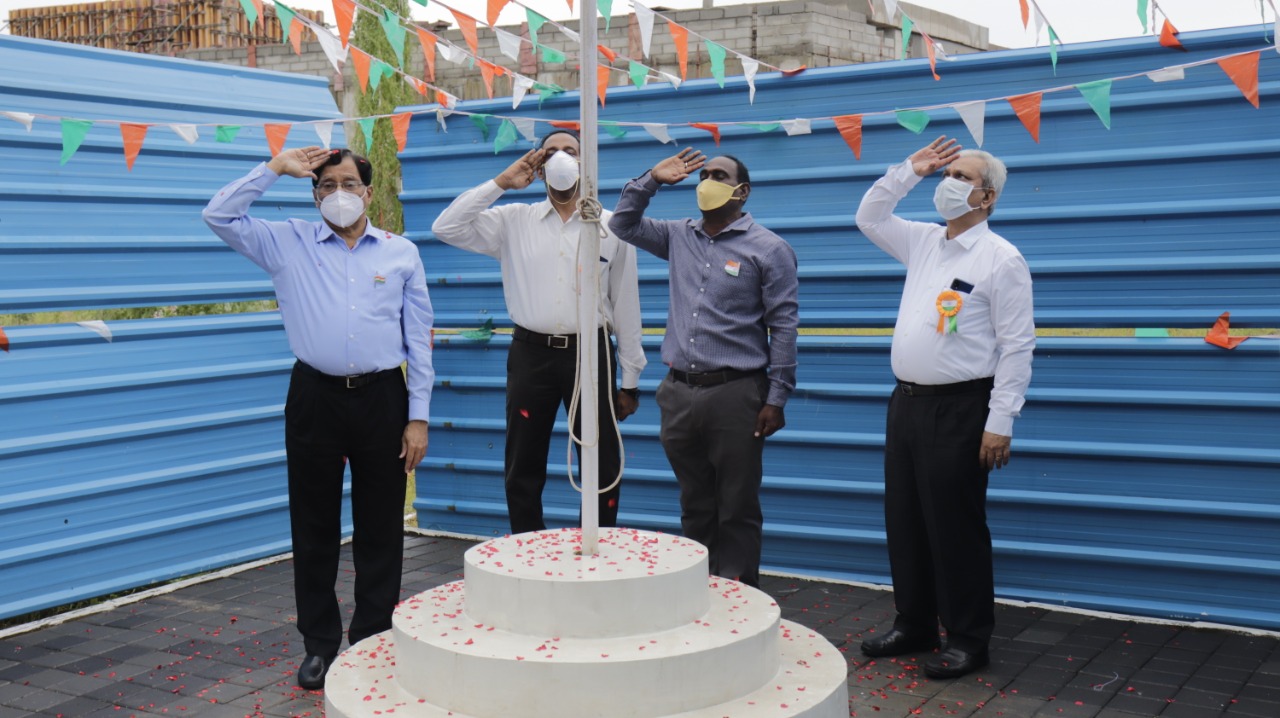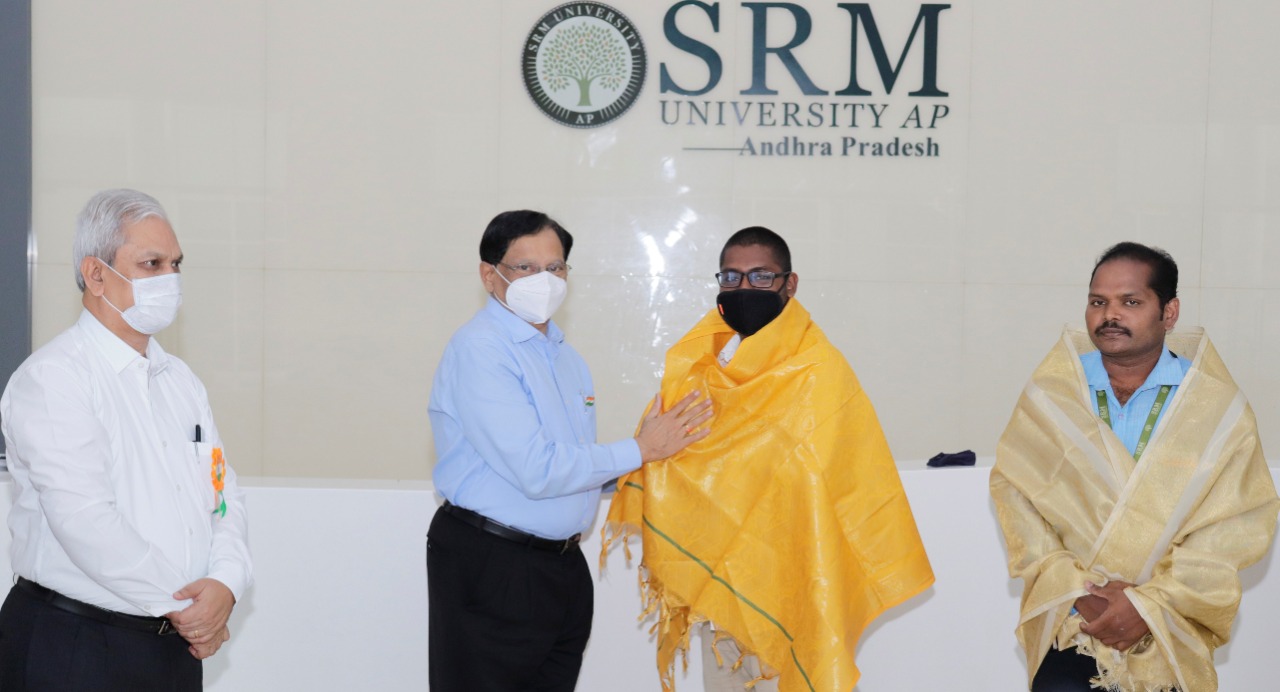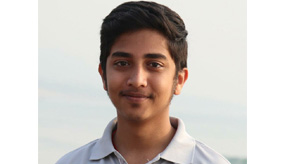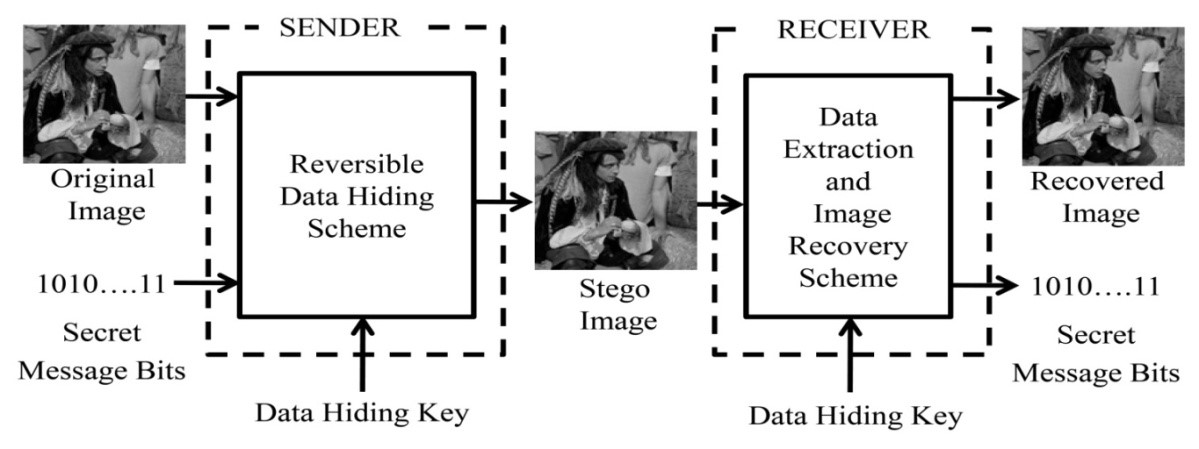National flag hoisting by Prof V S Rao, Vice-Chancellor
 On the occasion of Independence Day, Prof. V. S. Rao, Vice-Chancellor hoisted the national flag and addressed the employees and students. During his address, Prof V. S. Rao remembered our freedom fighters and emphasized on how non-violence freedom struggle set an example for the entire world to imbibe. He further urged everyone to dedicate ourselves to the nation by contributing in advancement of science and technology, especially in the domain of Information Technology, healthcare, nutrition, and agriculture. Dr. D. Gunasekaran, Registrar, Wg Cmdr Venkataachalam Sekkappan, Director-CLM, Ms. Revathi Balakrishnan, Assistant Director-Student Affairs and others participated in the ceremony.
On the occasion of Independence Day, Prof. V. S. Rao, Vice-Chancellor hoisted the national flag and addressed the employees and students. During his address, Prof V. S. Rao remembered our freedom fighters and emphasized on how non-violence freedom struggle set an example for the entire world to imbibe. He further urged everyone to dedicate ourselves to the nation by contributing in advancement of science and technology, especially in the domain of Information Technology, healthcare, nutrition, and agriculture. Dr. D. Gunasekaran, Registrar, Wg Cmdr Venkataachalam Sekkappan, Director-CLM, Ms. Revathi Balakrishnan, Assistant Director-Student Affairs and others participated in the ceremony.
 Ph.D. students of SRM AP, D. Lenin babu and Yarramsetti Saisrinu who nobly served the needy during the pandemic were praised by Prof. V. S. Rao and Dr. D. Gunasekaran. During the lockdown, the two students distributed free essentials such as rice and condiments to the poor. They were honored with shawls and were presented the “Care Humanity” award along with mementos. Further, cultural events were organized where students participated in dance and song performances through online platform.
Ph.D. students of SRM AP, D. Lenin babu and Yarramsetti Saisrinu who nobly served the needy during the pandemic were praised by Prof. V. S. Rao and Dr. D. Gunasekaran. During the lockdown, the two students distributed free essentials such as rice and condiments to the poor. They were honored with shawls and were presented the “Care Humanity” award along with mementos. Further, cultural events were organized where students participated in dance and song performances through online platform.
CSE student presented paper on Data Hiding
K. Sree Rama Murthy, Second Year B. Tech-CSE student presented a paper at a conference in IIT-Kharagpur
 K. Sree Rama MurthySRM University-AP always inspires the students in their pursuits, be it a job of their choice or a career in research and higher studies. K. Sree Rama Murthy, a 2nd-year student of B.Tech in Computer Science and Engineering, has recently presented a research paper on “A Block-wise Histogram Shifting based Reversible Data Hiding Scheme with Overflow Handling” in the Eleventh International Conference on Computing, Communication and Networking Technologies (11th ICCCNT), held at IIT Kharagpur, India in association with IEEE Kharagpur Section, during July 1 – 3, 2020.
K. Sree Rama MurthySRM University-AP always inspires the students in their pursuits, be it a job of their choice or a career in research and higher studies. K. Sree Rama Murthy, a 2nd-year student of B.Tech in Computer Science and Engineering, has recently presented a research paper on “A Block-wise Histogram Shifting based Reversible Data Hiding Scheme with Overflow Handling” in the Eleventh International Conference on Computing, Communication and Networking Technologies (11th ICCCNT), held at IIT Kharagpur, India in association with IEEE Kharagpur Section, during July 1 – 3, 2020.
Data hiding is a process of embedding a secret message into a cover medium for secure message transmission. The reversible data hiding techniques are recently explored in the domain of data hiding in which the cover image can be recovered while extracting the hidden secret message. The overview of a reversible data hiding scheme is shown in Figure. 1.
 Figure 1. Overview of reversible data hiding
Figure 1. Overview of reversible data hiding
In this research paper, Sree Rama Murthy introduced a new reversible data hiding algorithm based on the histogram of the blocks of the cover images with an efficient overflow management technique to achieve a better embedding rate without compromising the visual quality of the stego image.
Design and development of reversible data hiding schemes are widely studied topic due to its wide scope in cloud computing and medical image transmission. This paper introduces a new reversible data hiding algorithm based on the histogram of the blocks of the cover images with an efficient overflow management technique. In the new scheme, the peak intensity value from each block is used for data hiding, and to make sure the correct recovery of the original image, the grayscale value used for data hiding from each block is embedded in the same block itself by replacing the least significant bits of eight selected pixels. The lossless recovery is ensured by embedding those least significant bits in the same block itself along with the secret message. Detailed theoretical analysis and experimental study of the scheme are carried out and discussed in this paper. The images from the standard image dataset of the University of Southern California (USC-SIPI) are used in their study.
“To be able to publish a research paper at such an early stage in a reputed conference like ICCCNT-2020 is an achievement that has acted as a cornerstone for my research aspirations. I feel highly encouraged, motivated and inspired to contribute more in the fields of research. I express my sincere gratitude to my professors, especially to Dr Manikandan V. M for providing me with the opportunity to collaborate. He put his trust on me, encouraged to do research with him and guided me with his knowledge and experience throughout the journey. I feel this is only the beginning for me, and I will try my best to accomplish more and retain more knowledge,” said Sree Rama Murthy.
Sree Rama Murthy plans to acquire a master’s degree in computer science and aspires to be a researcher who can make significant contributions in the domain of Computer Science and Engineering.
- Published in CSE NEWS, News, Research News
A humble celebration at SRM AP on ‘Founder’s Day’
Distributing fruits and jute bags on the auspicious occasion of Founder Chancellor and MP, Dr. T.R. Paarivendhar’s birthday
 Founder’s Day Celebration at SRMAPSRM University AP, Andhra Pradesh celebrated ‘Founder’s Day’ on the propitious occasion of the birthday of Dr. T.R. Paarivendhar, Founder Chancellor of SRM Group and Hon’ble Member of Parliament, Perambalur Constituency, Tamil Nadu. Soon after, as part of the occasion, jute bags were distributed among the dwellers of Neerukonda and Kuragallu, encouraging them to quit using plastic products. Further contributing to the environment, Prof Vajja Sambasiva Rao, Vice-Chancellor, planted saplings around SRM AP campus.
Founder’s Day Celebration at SRMAPSRM University AP, Andhra Pradesh celebrated ‘Founder’s Day’ on the propitious occasion of the birthday of Dr. T.R. Paarivendhar, Founder Chancellor of SRM Group and Hon’ble Member of Parliament, Perambalur Constituency, Tamil Nadu. Soon after, as part of the occasion, jute bags were distributed among the dwellers of Neerukonda and Kuragallu, encouraging them to quit using plastic products. Further contributing to the environment, Prof Vajja Sambasiva Rao, Vice-Chancellor, planted saplings around SRM AP campus.
The celebration continued with SRM AP staff visiting the elderly at the Sri Krishna Chaitanya Old Age Home, Mangalagiri. Chief Guest of the event, Ram Prasad himself rendered a hand in the noble gesture of distributing fruits to the elderly. Prof Vajja Sambasiva Rao lauded the gesture of the university to extend services to the society. SRM University-AP Seva Programmes were also appreciated and attended by Dr. B. Sivakumar, Deputy Registrar, Wg Cmdr Venkataachalam Sekkappan, Director-CLM, and Ramesh Babu, Chief Liaison Officer, among others.
 Prof VS Rao, VC, planting trees
Prof VS Rao, VC, planting trees
ECE student secured top prize at Independence Day Painting Competition
Monochromatic painting of Mahatma Gandhi won hearts and the first prize at the inter-department competition.
 Painting of GandhiThe Department of Electronics and Communication Engineering is very proud of its student Ms Vyshnavi Tanikonda for securing the first prize in the Independence Day Painting Competition. Ms Vyshnavi painted a beautiful monochromatic painting of Mahatma Gandhi, the ‘Father of the Nation’ who fought for the independence and sovereignty of the country till his last breath. Ms Vyshnavi, a 2nd-year student, successfully captured the true essence of the great patriot in her painting which brought her the top prize in the inter-departmental competition. The Department of ECE heartily congratulates its daughter for bringing this honour to the department.
Painting of GandhiThe Department of Electronics and Communication Engineering is very proud of its student Ms Vyshnavi Tanikonda for securing the first prize in the Independence Day Painting Competition. Ms Vyshnavi painted a beautiful monochromatic painting of Mahatma Gandhi, the ‘Father of the Nation’ who fought for the independence and sovereignty of the country till his last breath. Ms Vyshnavi, a 2nd-year student, successfully captured the true essence of the great patriot in her painting which brought her the top prize in the inter-departmental competition. The Department of ECE heartily congratulates its daughter for bringing this honour to the department.
- Published in ECE NEWS, News, Students Achievements

